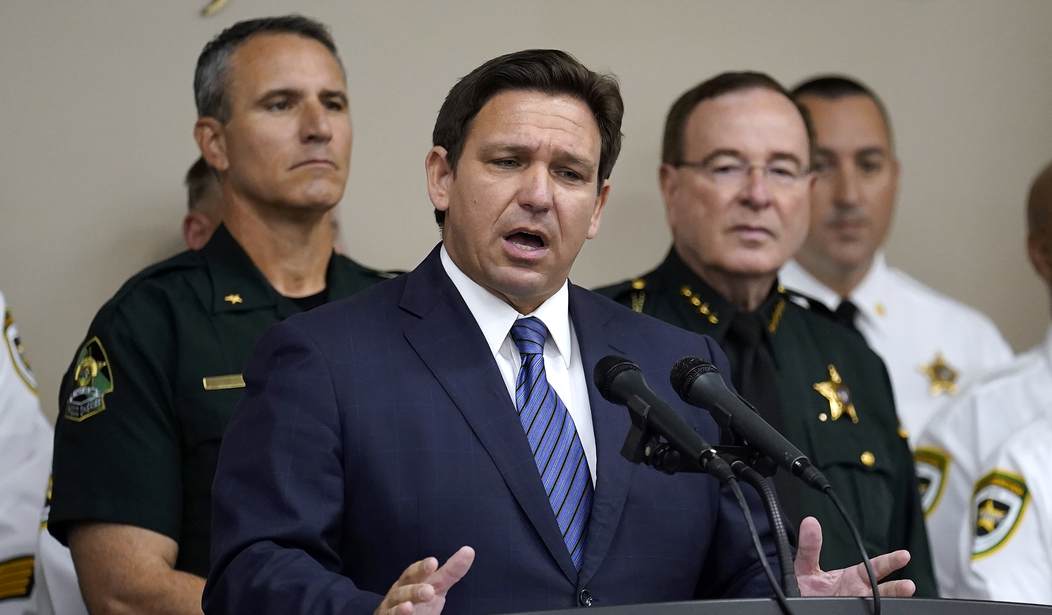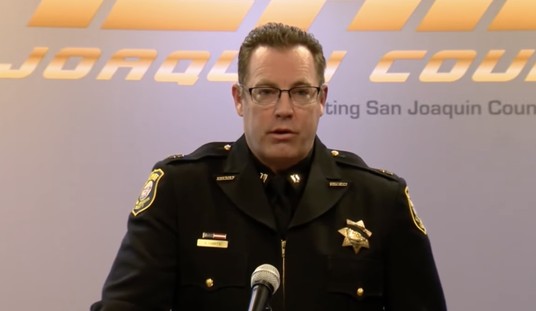Earlier this year, Florida Gov. Ron DeSantis signed a bill into law to protect the integrity of the state’s elections. The move was lauded by Republicans concerned about voter fraud and its impact on local and state-level races. But it appears these measures might have exposed another critical issue that should also garner some attention.
Last week, DeSantis held a press conference in which he announced that 20 people had been arrested for allegedly voting fraudulently.
“All 20 of these individuals were disqualified from voting after they were convicted of murder or a felony sexual offense, but they chose to vote anyway, and now they have all been charged with voter fraud — a third-degree felony punishable by up to a $5,000 fine and up to 5 years in prison,” according to a press release published on the governor’s website.
“In 2020, Florida ran an efficient, transparent election that avoided the major problems we saw in other states. At the same time, the election was not perfect, which is why we continue our efforts to ensure the integrity of our elections,” Gov. DeSantis said. “Our new election crimes office has sprung into action to hold individuals accountable for voter fraud. Today’s actions send a clear signal to those who are thinking about ballot harvesting or fraudulently voting. If you commit an election crime, you will be prosecuted to the fullest extent of the law.”
However, it appears there may be more to this story. The alleged fraudulent votes might be more a problem of government inefficiency than malice.
Court documents suggested that at least some of those arrested believed they were eligible to vote because they received notices from government entities indicating this was the case. The defendants told law enforcement they did not intend to vote fraudulently. These individuals were barred from voting due to prior convictions.
Politico reported:
In the days since the announcement, however, several of those arrested have told media outlets or authorities that they had no idea they were not eligible to vote. In court documents filed in five counties, most say at least one official government body — in most cases a local election supervisor — incorrectly indicated to them they could vote, including allowing them to register and sending them voter cards in the mail.
The court records revealed that many of those who were arrested have little education and are not familiar with the law. The Florida Department of Law Enforcement interviewed the defendants in early August before arresting them.
From Politico:
Peter Washington, a 59-year-old Black man from Orlando, who served 10 years in prison related to sexual battery conviction, told a Florida Department of Law Enforcement special agent that prison officials informed him he could vote. At the time, he was taking classes to transition back into society as his release date from prison approached. He received no indication from the Orange County Supervisor of Elections office that he was not eligible to vote.
Authorities in Orange County court filed an affidavit explaining that “Washington received a voter registration form in the mail, filled it out, and mailed it back to the Orange County Supervisor of Elections Office.”
The office mailed him a voter card soon thereafter.
Michelle Stribling, a 52-year-old woman convicted of second-degree murder told the authorities that she “could not read or write very well” and did not “understand questions related to her status as an ex-felon on registration paperwork,” according to Politico.
Nevertheless, Orange County election officials mailed her a voter card after she registered. This led her to believe that she was eligible to vote.
“Stribling believed that her rights were restored because she completed the voter registration application and received a voter registration card,” according to the probable cause affidavit.
Many of the defendants told similar stories. They received voter registration applications, filled them out, sent them back to the elections office, and then received voting cards.
If these stories are true – and they likely are based on what I’ve seen in similar situations in other states – it reveals a disturbing problem in how these matters are handled by government offices. If someone has a conviction preventing them from voting, they should not receive voting cards even if they fill out an application. They must have a better way of weeding out those whose convictions bar them from going to the polls – otherwise, it creates a situation in which someone could be sent back to jail for a crime they did not know they were committing.
It’s not yet clear whether DeSantis’ new election integrity measures will have an impact when it comes to tamping down on actual voter fraud. But this situation certainly revealed the fact that there might be something broken in the state’s elections system.












